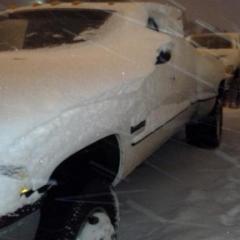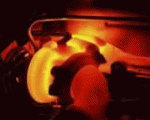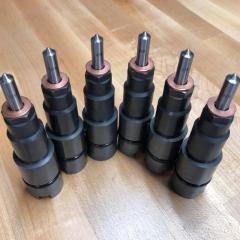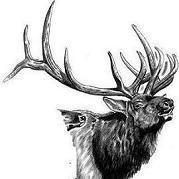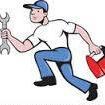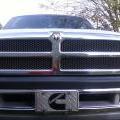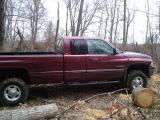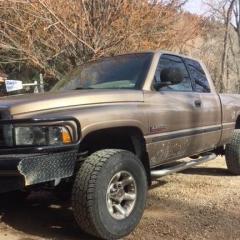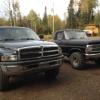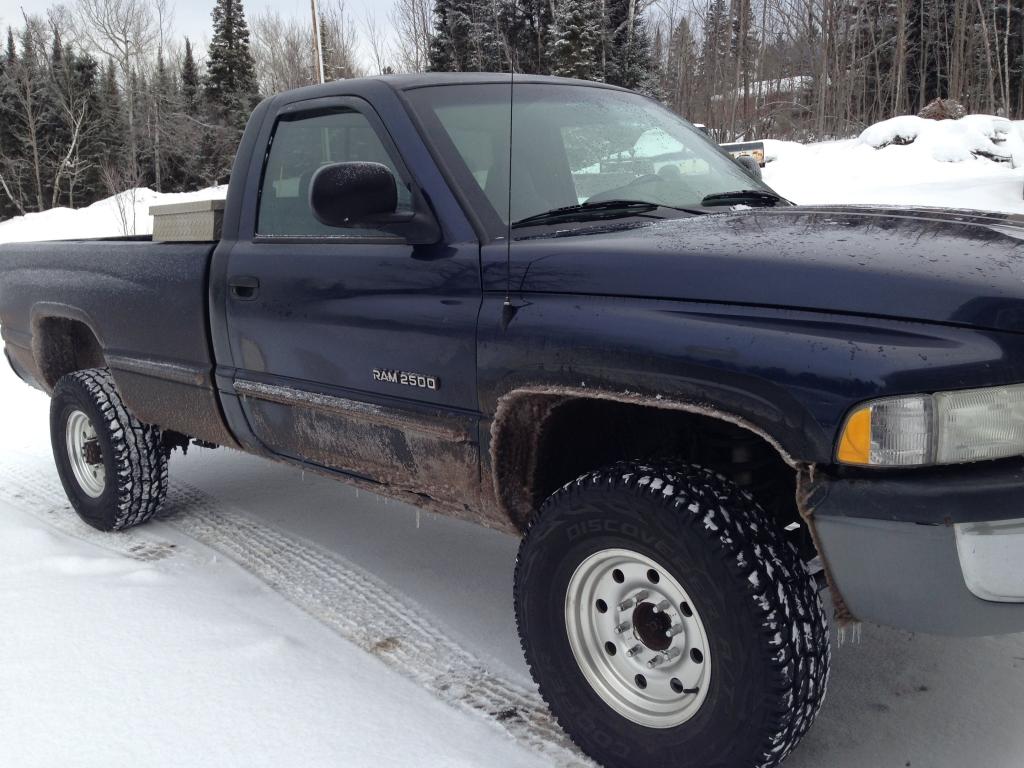Leaderboard
-
in all areas
- All areas
- Marker
- Events
- Event Comments
- Files
- File Comments
- File Reviews
- Images
- Image Comments
- Image Reviews
- Albums
- Album Comments
- Album Reviews
- Blog Entries
- Blog Comments
- Topics
- Posts
- Cummins Articles
- Cummins Article Comments
- Cummins Article Reviews
- Vendors
- Vendor Comments
- Vendor Reviews
- Ads
- Ad Comments
- Ad Reviews
- Policies
- Policy Comments
-
Custom Date
-
All time
December 14 2009 - July 20 2025
-
Year
July 20 2024 - July 20 2025
-
Month
June 20 2025 - July 20 2025
-
Week
July 13 2025 - July 20 2025
-
Today
July 20 2025
-
Custom Date
02/23/2016 - 02/23/2016
-
All time
Popular Content
Showing content with the highest reputation on 02/23/2016 in all areas
-
HO VP44 or SO?
3 pointsThe 1999 SO trucks came with the optional 5600, and the tranny came with the smaller 1 1/4" input shaft like the 4500. To be sure if you have the SO or the HO, you can confirm with the VIN. If the 8th digit is a 6 then its an SO. If its a 7 then you have an HO.3 points
-
What gets your adrenaline flowing?
3 points3 points
-
Sticking clutch pedal
2 pointsOn a positive note for you, I've experienced a sticky clutch pedal two times. The story I just told was the second time. The first time was with the stock clutch and the OEM hydraulics. The clutch pedal felt like rubber shoe sole sliding across a smooth surface. That time it was the clutch master cylinder and I didnt want to spend money on replacement hydros. So what I did was kind of difficult to explain but here goes..... I had someone assist me by sitting in the drivers seat while I was laying on the floorboard in front of them. They pressed the clutch pedal about half way and I pulled back the clutch safety switch with my hand. Then I took a can of PB blaster and using the spray straw, I poked the straw in along next to the cylinder shaft and sprayed a douse of PB blaster directly into the master cylinder piston. I love PB blaster as the stuff really does wonders for rubber components. (plug over) Then waiting about 30 seconds I had my helper press the pedal all the way to the floor and then let them release the clutch. Yes, some PB oozed out so I had a rag handy to mop up the mess. But now for the good news, my clutch pedal regained its smoothness and lasted that way for a couple more years until I replaced the clutch and replaced the hydraulics for a new SB set. I'm not telling you what to try but merely sharing what worked for me.....2 points
-
Fuel pressure test port
2 pointsI use a needle valve as a snubber. I've never had any issues with mine. The valve is just barely cracked open.2 points
-
Guess What I'm doing this weekend?
2 pointsbecause user are not always able to see into the download section, downloads are only open to those who donate to pay for the bandwidth. It would be much better to take that info out of the FSM and move it to an article.2 points
-
What gets your adrenaline flowing?
2 pointsYou guys think helo pilots are nuts!? That submarine is a sweet piece of equipment, but OH HELL NO!!!2 points
-
Did injectors and valve adjustment
I decided to upgrade my injectors and while in there adjust the valves. Thanks moparman... for the write-ups! BIG help! Other than breaking the breather nipple.. everything went smoothly. Much easier than I anticipated. Only issue I really had... was getting a torque wrench on the back most fuel line nut.. so I just guestimated with a regular wrench. Also decided to do a grid delete and have my intake and valve cover powder coated. Throughout the whole process.. I was so nervous that when I finished it wasn't going to start or run as well as it did before I stuck my hands in there. Well... it took around 4 times cranking before I heard it turn over... music to my ears :-) It coughed just a couple times.. then smoothed out and was purring like a kitten. I installed the valve cover and intake a couple hours later and took it for a spin.. runs great. yay!! Thanks again for the info............. Pic of valve cover and intake BTW.. One of the connector tubes looked funky on one side... can someone tell me why or what the cause is/was? I wire brushed and reinstalled...1 point
-
Fuel pressure test port
1 pointI have two snubbers. A snubber on the gauge line coming off the fuel filter housing and ISSPRO custom installed a snubber orifice in the mechanical gauge for me for free. Smooth and responsive gauge movement. Oh yeah, I also installed a tee in the gauge line after the before the snubber and re-installed the OEM schrader valve test port in that tee. I've only had to use it a couple times but I was sure glad it was there when I needed it. I also bought a Vulcan test gauge and have it sitting around just in case. Its always good to confirm your in-cab gauge upon installation at the very least.1 point
-
Sticking clutch pedal
1 pointI ran into this very same "sticky" clutch pedal feel about 5000 miles after installing my SB clutch. I did everything as I've always done on any clutch job, and was feeling like the problem was the hydraulics. But.....the strange part was the clutch pedal movement was smooth when the engine was not running. Strange..... So after pulling the hydraulics and finding that they were fine, I reluctantly pulled the tranny back and found that the throwout bearing was hanging up on the input shaft sleeve. Upon the clutches initial installation I lightly greased the input shaft sleeve, but I think what happened was that the clutch dust was incompatible with the grease I used and eventually turned that grease into sticky crud instead of lubricating. Kind of the same thing as what happens with molly grease. I cleaned the sleeve off and bought a new throwout bearing (just because I was in there). This time I used no grease aside from what was pre-lubed in the new throwout bearing. And after putting it all back together, the clutch pedal has never felt so smooth..... It even feels lighter and the clutch engages better. In point, it appears that the throwout bearings sticky movement on the shaft was causing more issues than just a jerky clutch pedal. If you find that hydraulics arent the problem, you might be experiencing the same issue I was.1 point
-
Tools rusting
1 pointRemember: A used tool never rusts and a rusted tool never works. I just wipe the tools off an put them away. The only tools I have a problem with are the impact sockets because they are not chrome plated and I do get caught out in the rain once in a while.1 point
-
How To Reset / Calibrate Your APPS Sensor
How To Reset / Calibrate Your APPS Sensor WARNING! Any time the batteries are disconnected, batteries ran dead, ECM disconnected, Accelerator Pedal Position Sensor (APPS Sensor) disconnected, Accelerator Pedal Position Sensor (APPS Sensor) replaced the Accelerator Pedal Position Sensor (APPS Sensor) calibration procedure MUST be done again to reset the Accelerator Pedal Position Sensor (APPS Sensor) idle and WOT limits. If the calibration is not done error codes and other issues must occur. 1. Disconnect the batteries and leave disconnected for at least 30 minutes. Now reconnect the batteries. 2. Turn key to ON position. (Do not Start) 3. Without starting engine, slowly press throttle pedal to floor and then slowly release. This step must be done (one time)>to ensure accelerator pedal position sensor calibration has been learned by ECM. If not done, possible DTC’s may be set. 4. Turn the key OFF. NOTE: Disconnecting the batteries will not erase or reset error codes. All it does is erase the Accelerator Pedal Position Sensor (APPS Sensor) calibration in the ECM. As the video below will demostrate.1 point
-
Sticking clutch pedal
1 pointi experienced some of that with my Valair. Installed a SB on the same hydros and no issues. i dont think my problem was in the hydros. I think either my throw out bearing was binding or the clutch disc was binding on the input shaft.1 point
-
Wipers
1 pointOK thanks kinda what I thought the internationals I work on do it to but wasn't sure if the switch was internal on the dodge too1 point
-
Could really use some help - Engine knock
No point in upgrading turbo if you're just throwing in RV275s. The stock HX can flow enough air and keep things cool enough for 40 HP injectors. MY WH1C (HX35 essentially) handled my 100s just fine. I ran the comp off or on 3x3 when hauling heavy with no heat issues. There might be some upgraded aftermarket turbos out there that might spool a little quicker or keep things slightly cooler but not worth the $1200 price tag. UNLESS, your local rebuilder wants an arm and a leg to rebuild your turbo and balance it. I think my Super B spools slower than any of the Holsets I had, but it flows more in the 1700-2200 rpm range and top end and keeps things cooler1 point
-
HO VP44 or SO?
1 pointThere is a metal plate on the gear cover area right by the vp44. Most nv5600 trucks were ho but some of the early ones were SO.1 point
-
HO VP44 or SO?
1 pointYea from what I understood the SO/HO were directly related to the engine type being either SO/HO. If I remember correctly, there seems to be no real benefit to getting the HO or hot rod pumps, but I have no experience with either. What did DAP tell you?1 point
-
HO VP44 or SO?
1 pointlook at the tag on your motor, is it a 245 ho or a 235 so? I know some early 6 speed trucks were SO's still. regardless I would go with a SO pump1 point
-
Could really use some help - Engine knock
1 point
-
What gets your adrenaline flowing?
silent blade helo?? You believe in too many conspiracy theories. Even the stuff that doesn't exist isn't silent.1 point
-
Fuel pressure test port
1 point
-
Tools rusting
1 pointI use a little WD-40 and put a few of those desiccant bags in the draws as well.1 point
-
Tools rusting
1 point
-
New truck!!
1 pointIt's begun! I finally got my fuel down enough to where I don't have to siphon too much gas out of the tank before dropping it. But that's where I've hit my first dilemma, need a impact wrench to get that forward most tank strap loosened up. I want to take my time modifying the fuel module with the draw straw and bigger return lines since this is the only part I am only unfamiliar with. Everything else should be fairly straight forward.1 point
-
Could really use some help - Engine knock
How many miles on injectors? If original, RVs aren't a bad deal at all, especially with stock turbo. Clutch, if stock, (and planning on staying near stock power) should be fine. Boots won't hurt, but are an easy fix later. If you upgrade turbos, you are in a tough decision of where you want to make power. Along with that decision, you have the question of programmers, injectors, exhaust and trans/clutch. I like my 62 and 125s, but it is smoky at 6,000 ft pressure altitude. If less than 4,000 pressure alt, I would recommend a II 62/12 turbo with the smarty. Above that, I am still working toward a good combination. The one item I would look at is your clutch hydraulics. I would replace it with a South Bend unit while the engine is out or a stock unit a minimum. Any transmission bearings like pilot bearings and whatnot that are accessible, I would change while the engine is out. If I got really bored, I would do the power steering pump, starter brushes, and vacuum pump while it is out. A cam isn't bad, but is a lot of money. I really REALLY want to try one. If I were you, I wouldn't go for new cam springs unless my old ones are bad. In short, RV injectors will help. A cam... maybe. A turbo is a calculation to sync with injectors, fuel, and driveline upgrades are never bad.1 point
-
Grease guns
1 pointI use an air Greese gun for the work truck, it takes about 3 tubes of Greese to do truck and trailer 6 axles. It gets greesed every 3000 miles so I order Greese tubes by the case. For as few as Greese zirks these trucks have, a cheap harbor freight or wal mart would do just fine. Just make sure you get a flex hose and extra tip. And grind the tip a little to get into the tight places. And use a quality Greese like the red stuff or the blue marine Greese. That stuff goes on and sticks1 point
-
Morning Pic For Today...........Post A Pic around your place.....
1 point
This leaderboard is set to Boise/GMT-06:00


